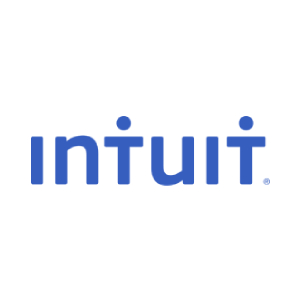Beyond the Hype: Is Project IDX the Future or Just Fleeting?

In software development, introducing a new tool can be transformative. Google's latest, Project IDX, is an AI-enhanced development platform that's making waves. As with any major announcement from a tech giant, the reactions have been diverse, ranging from excitement to skepticism. This article aims to provide a balanced, in-depth analysis of Project IDX, its potential implications, and its position in the broader development ecosystem.
Project IDX and Its Real-World Applications
At its core, Project IDX is designed to reimagine the way developers approach web and multiplatform app creation. Let's delve deeper into its standout features and their potential real-world applications:
- Framework Support:
- Feature: IDX is not limited to a single framework. It champions popular ones like Angular, Flutter, Next.js, React, Svelte, and is compatible with languages such as Dart and JavaScript. Future updates promise integration with Python and Go.
- Real-World Application: Developers can seamlessly transition between projects without the need to switch platforms. For instance, a team working on both a React web application and a Flutter mobile app can use IDX as a unified development environment.
- Integration with Existing Tools:
- Feature: IDX is built upon the foundation of Visual Studio Code - Open Source. Additionally, it's powered by Google's Codey, a PaLM 2-based model, which promises smart code completion and advanced AI chatbot assistance.
- Real-World Application: Developers familiar with VS Code can quickly adapt to IDX, benefiting from enhanced AI-driven code suggestions. Imagine a scenario where a developer is unsure about a particular function syntax; Codey can assist in real-time, reducing the need for external documentation.
- Cloud and Repository Connectivity:
- Feature: The platform offers integration with Google’s Firebase Hosting, Google Cloud Functions, and facilitates pulls from GitHub repositories.
- Real-World Application: A startup aiming to launch a web app can leverage IDX for development and directly deploy to Firebase Hosting. Additionally, teams can easily collaborate by pulling the latest code from GitHub, ensuring everyone is on the same page.
- Advanced Workspaces:
- Feature: Each workspace in IDX is backed by a Linux-based VM, with hints at future in-browser Android and iOS simulators.
- Real-World Application: Developers can work on resource-intensive projects without overburdening their local machines. Moreover, the anticipated in-browser simulators will allow mobile app developers to test and debug applications without the need for external devices or emulators.
Whether you're a solo developer working on a passion project or part of a large team building enterprise-level applications, IDX promises to offer tools and integrations that can streamline and enhance the development process.
Now, let’s look at how the tech world reacted to this announcement.
Is Google in it for the Long Haul?
The tech community's response to Project IDX has been varied. While many have expressed enthusiasm about its potential to redefine development, others have raised concerns, especially given Google's history with product discontinuation.
These concerns are not unfounded, given Google's track record with developer-focused tools and platforms. For instance, Google App Maker, launched in 2016 as a low-code application development platform, was designed to simplify the app creation process for businesses. Despite its potential, it was shut down in January 2021. Similarly, Google Web Designer, which aimed at creating interactive HTML5-based designs and motion graphics, saw its end in 2021. Google Cloud Print, a service introduced in 2010 to facilitate printing from any Cloud Print-aware application, was also discontinued at the end of 2020. Even AngularJS, a popular framework, saw its long-term support end in 2018, with Google shifting its focus to its successor, Angular.
These instances, especially the discontinuation of developer-centric tools like App Maker and Web Designer, underscore the apprehensions in the tech community regarding the longevity and consistent support for Project IDX.
With that larger question looming, how does Project IDX compare with it’s competitors?
Positioning Among AI-Driven Rivals
Navigating the current development tool ecosystem reveals several platforms leveraging AI to elevate the coding experience. GitHub's Copilot, Microsoft's Visual Studio IntelliCode, and JetBrains AI Assistant stand out as prime examples of this trend. While Project IDX enters a space with these established AI-driven tools, its distinct combination of AI capabilities, integrated cloud services, and expansive framework support distinguishes it as a strong challenger in the field.
| Feature/Platform | Project IDX | GitHub's Copilot | Microsoft's Visual Studio IntelliCode | JetBrains AI Assistant |
|---|---|---|---|---|
| AI-Driven Code Suggestions |  |
 |
 |
 |
| Cloud-Based IDE |  |
 |
Partial (VS Code for Web) |  |
| Multi-Framework Support |  |
 |
 |
 |
| Integrated Cloud Services |  |
 |
 |
 |
| AI Chat Assistance |  |
 |
 |
 |
| Documentation Generation |  |
 |
 |
 |
| Commit Message Generation |  |
 |
 |
 |
| Linux-based VM Workspaces |  |
 |
 |
 |
| Repository Connectivity |  |
Partial (GitHub only) | Partial (VS Code extensions) | Partial (VCS in IntelliJ) |
The above table provides a quick visual comparison of the features offered by Project IDX and its competitors. The  indicate the presence of a feature, while the
indicate the presence of a feature, while the  indicate its absence. The term "Partial" is used where the feature is present but not as comprehensive as in Project IDX.
indicate its absence. The term "Partial" is used where the feature is present but not as comprehensive as in Project IDX.
What IDX Means to Google and Jetbrains’ Partnership
Google's foray into this space raises questions about its relationships with other industry players. For instance, Google has a longstanding partnership with JetBrains, known for IntelliJ IDEA. With IDX seemingly overlapping in the territory of IDEs, it's worth pondering how this will affect their collaboration. Will they remain allies, or will IDX position Google as a direct competitor?
- Overlap with IntelliJ IDEA: IDX, being a development experience platform, might overlap with some of the features offered by IntelliJ IDEA. This could position Google as a potential competitor in the IDE space.
- Collaboration Opportunities: On the flip side, the release of IDX could open up new avenues for collaboration between Google and JetBrains. They could work together to integrate IDX features into IntelliJ IDEA or vice versa.
- Market Dynamics: If IDX gains significant traction among developers, it could shift the market dynamics. JetBrains might need to innovate and introduce new features to stay competitive.
- Strategic Decisions: Depending on the success and adoption of IDX, both Google and JetBrains might need to revisit their strategic decisions regarding their partnership. They might choose to deepen their collaboration or diversify their offerings to cater to different segments of the developer community.
The true impact of IDX on their partnership will depend on its adoption rate, the evolving needs of the developer community, and the strategic decisions taken by both companies. Only time will tell how this will unfold, but given their past collaborations, there's potential for both competition and cooperation.
Project IDX: The Path Ahead
Project IDX is not just another development tool; it's an ambitious endeavor that aims to reshape the entire development workflow. The platform's web-based workspace is designed to feel both familiar and fresh, ensuring developers can dive into their projects without a steep learning curve.
The promise of Project IDX extends beyond its current features. Google has hinted at a roadmap that includes richer collaboration tools, environment synchronization across devices, pair debugging, and enhanced code review mechanisms. All of these are powered by the latest AI technology, indicating Google's commitment to making IDX a state-of-the-art development environment. Moreover, Google's emphasis on community feedback suggests that Project IDX will be a continually evolving platform. The tech giant is actively seeking input from developers to refine and expand IDX's capabilities. This collaborative approach could ensure that IDX remains relevant and in tune with developers' needs.
The true potential of Project IDX lies in its future iterations. With upcoming support for built-in multi-browser web previews, Android emulators, and iOS simulators, developers will soon be able to preview their full-stack, multiplatform apps as users would experience them. This level of real-time feedback can significantly streamline the development and testing phases. Furthermore, Google's focus on AI assistance, particularly with Codey, suggests a future where AI plays an even more integral role in coding. Features like code generation, code translation between programming languages, and code explanations are just the tip of the iceberg. As AI technology advances, we can anticipate even more sophisticated tools that can assist developers in more nuanced and complex tasks.
While the features of Project IDX are undeniably groundbreaking, it's essential to approach its introduction with a neutral lens. The platform's success will hinge not just on its capabilities but also on Google's commitment to its sustained development and support. For developers, the decision to adopt a new environment is significant. It requires time, resources, and often a shift in workflow. The assurance that the platform will receive long-term support is paramount. Moreover, while IDX's AI-driven features promise enhanced productivity, they also usher in discussions about the role of AI in coding. Will it augment developers' capabilities, or will it overshadow the nuances and creativity that humans bring to the table?
For now, if you are keen to give Project IDX a spin, join the waitlist.
Have questions or comments about this article? Reach out to us here.
Banner Image Credits: The FinlandWorks team at Great International Developer Summit








